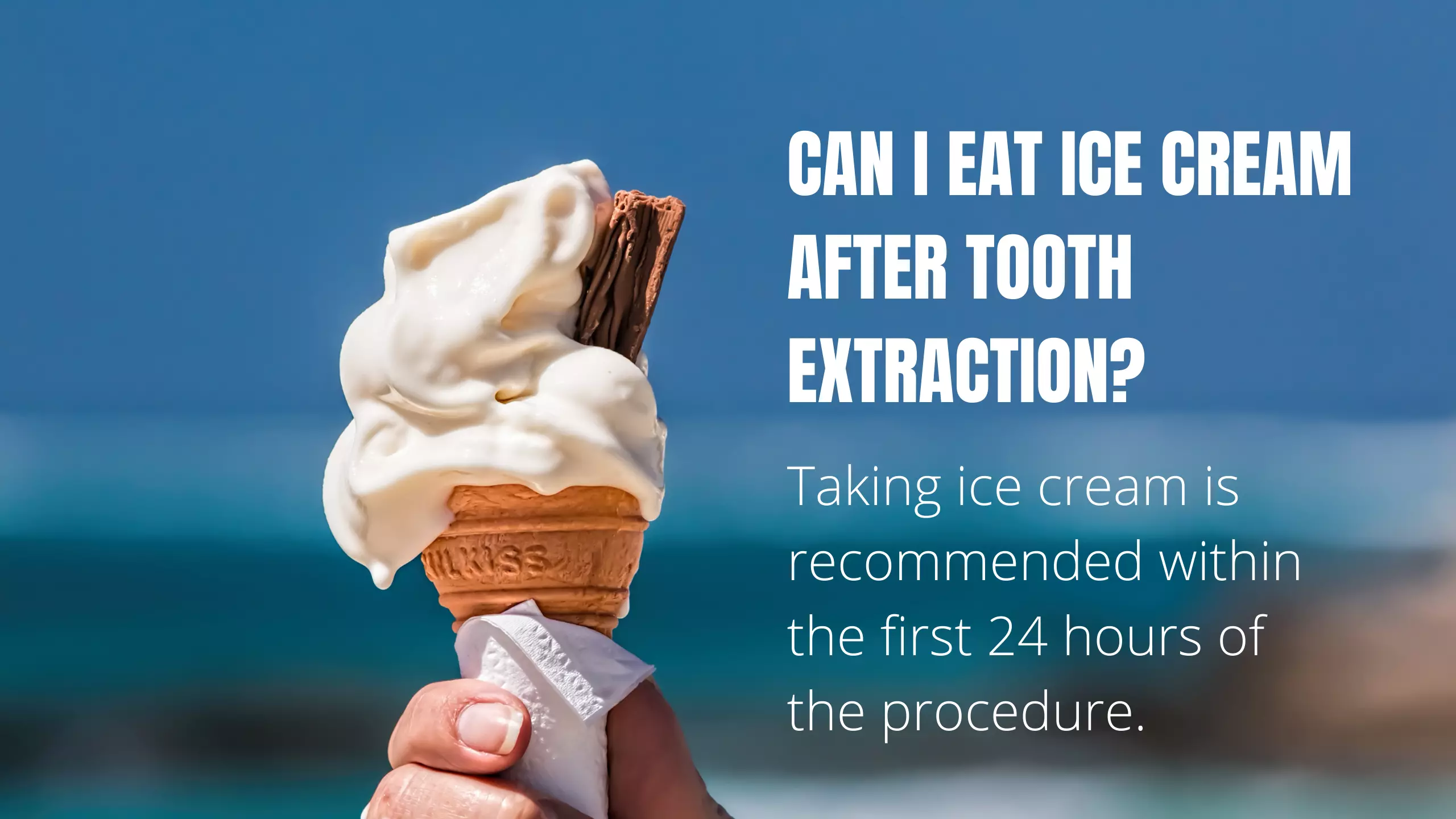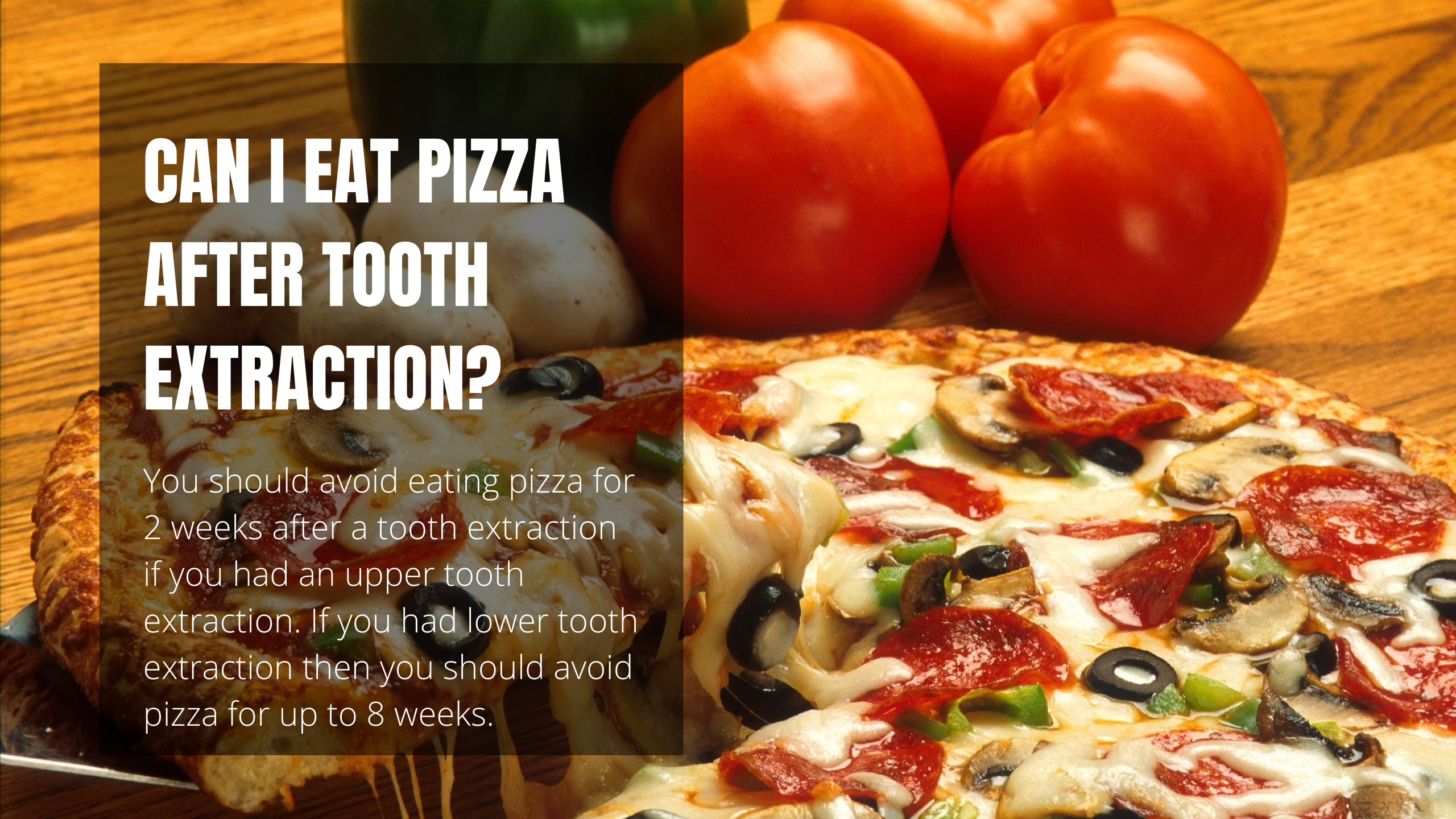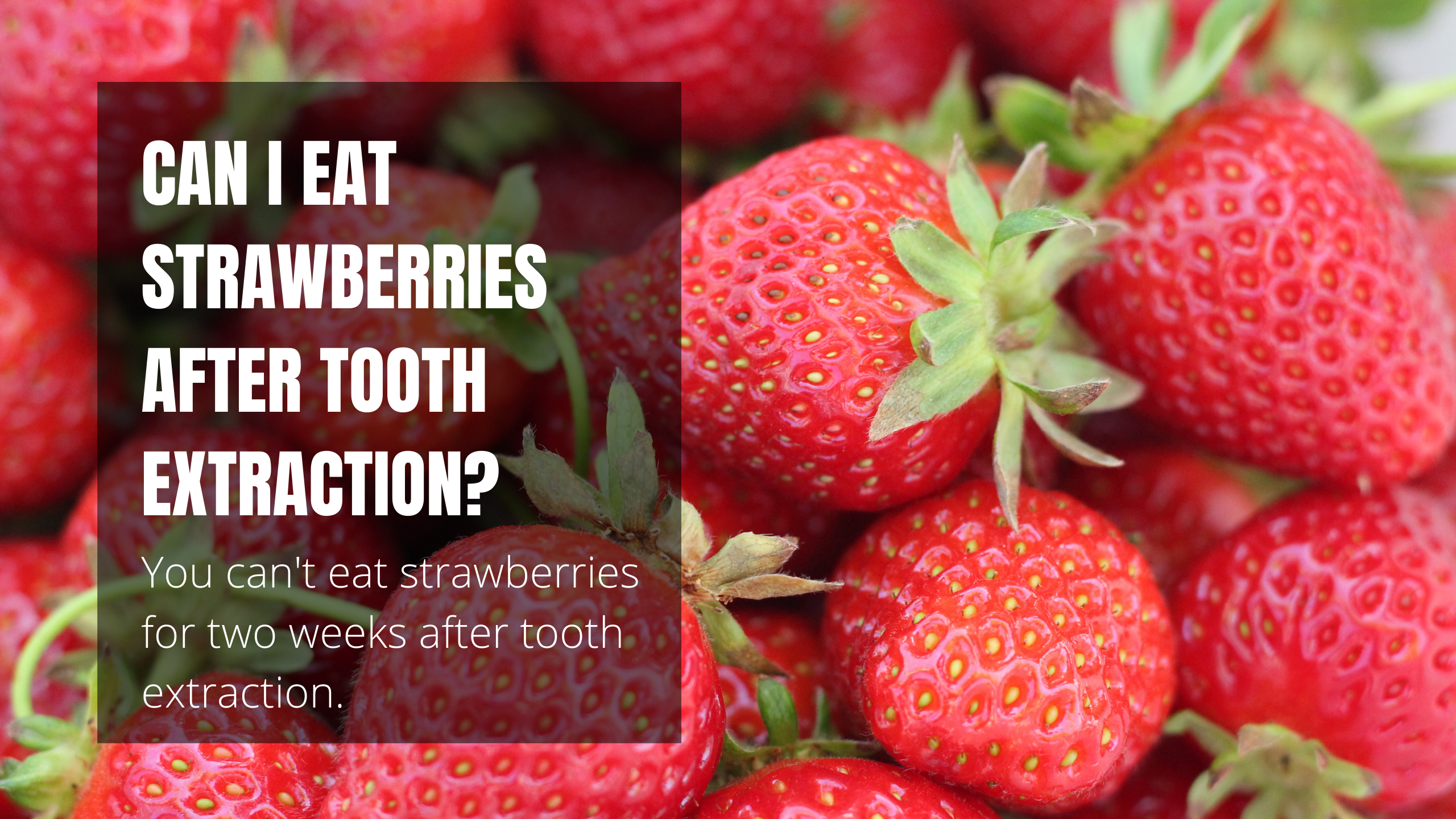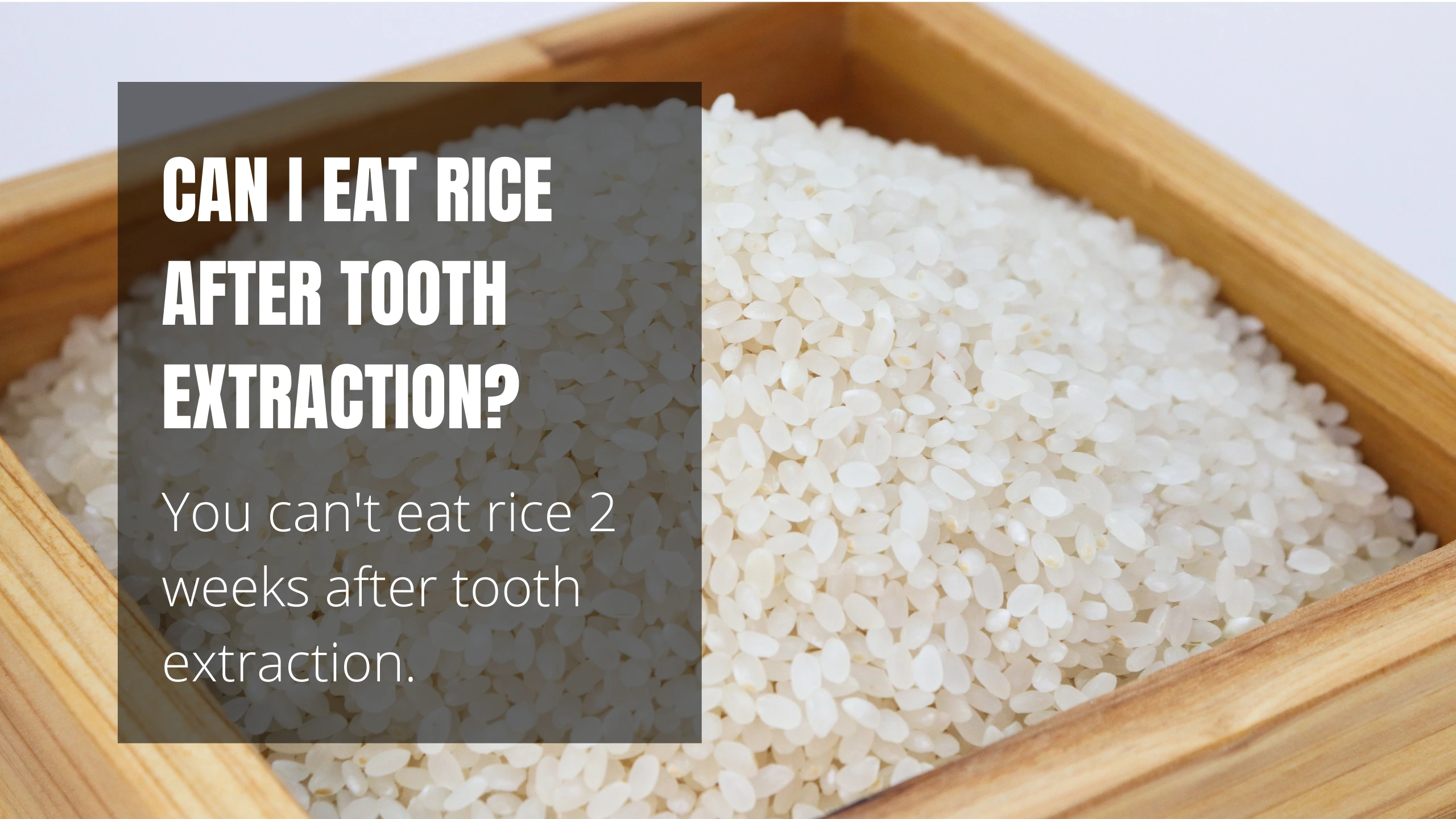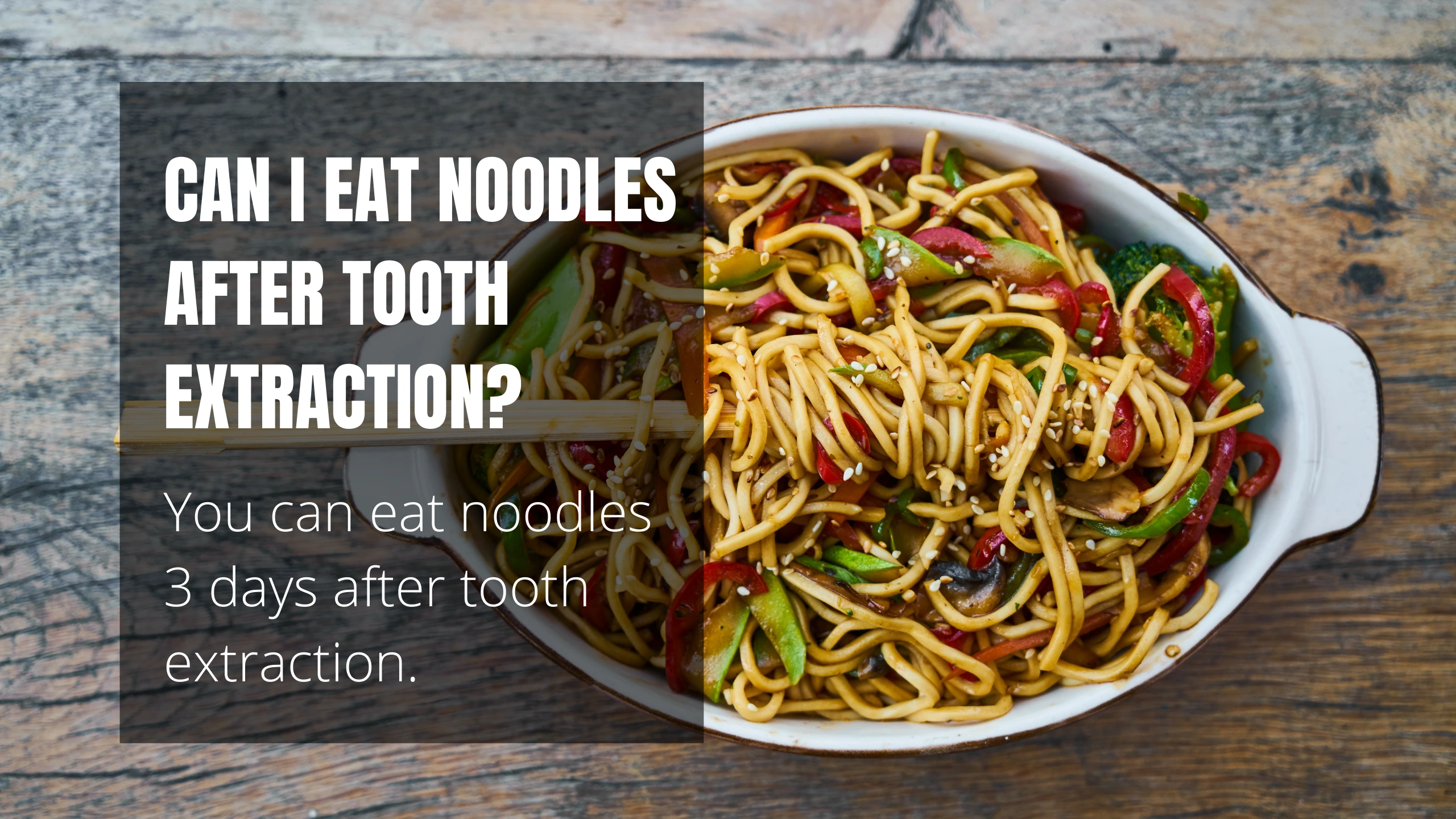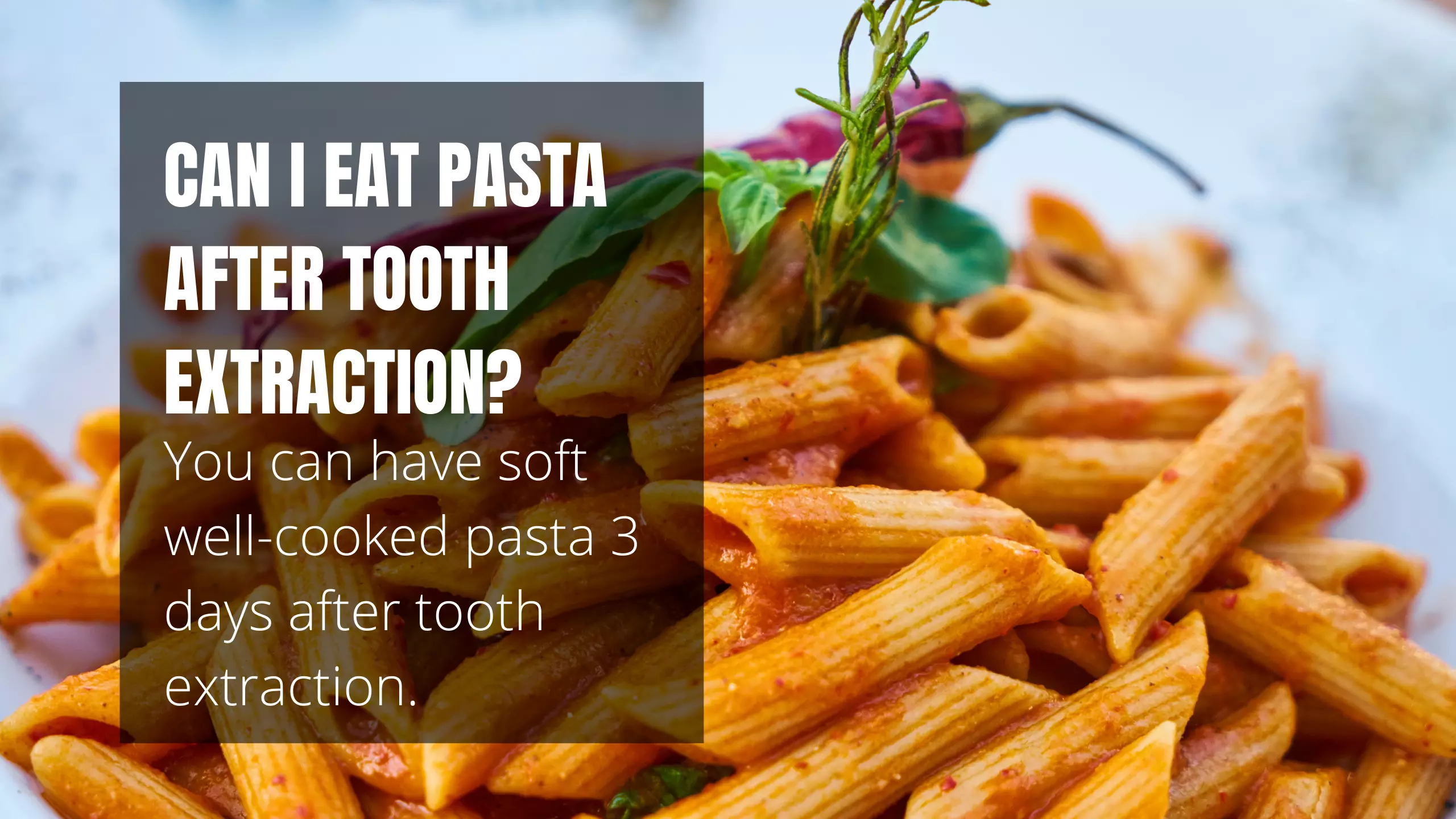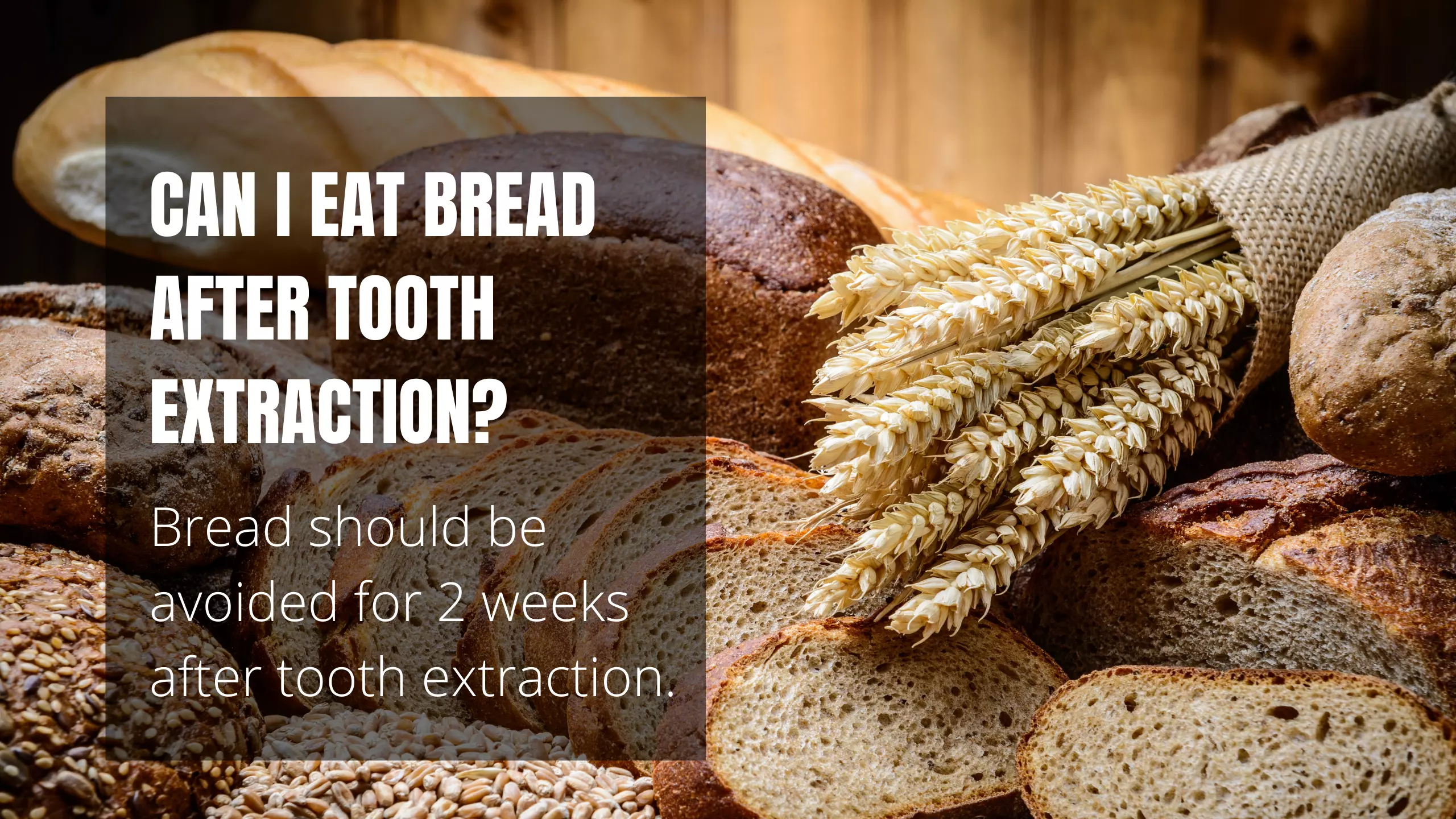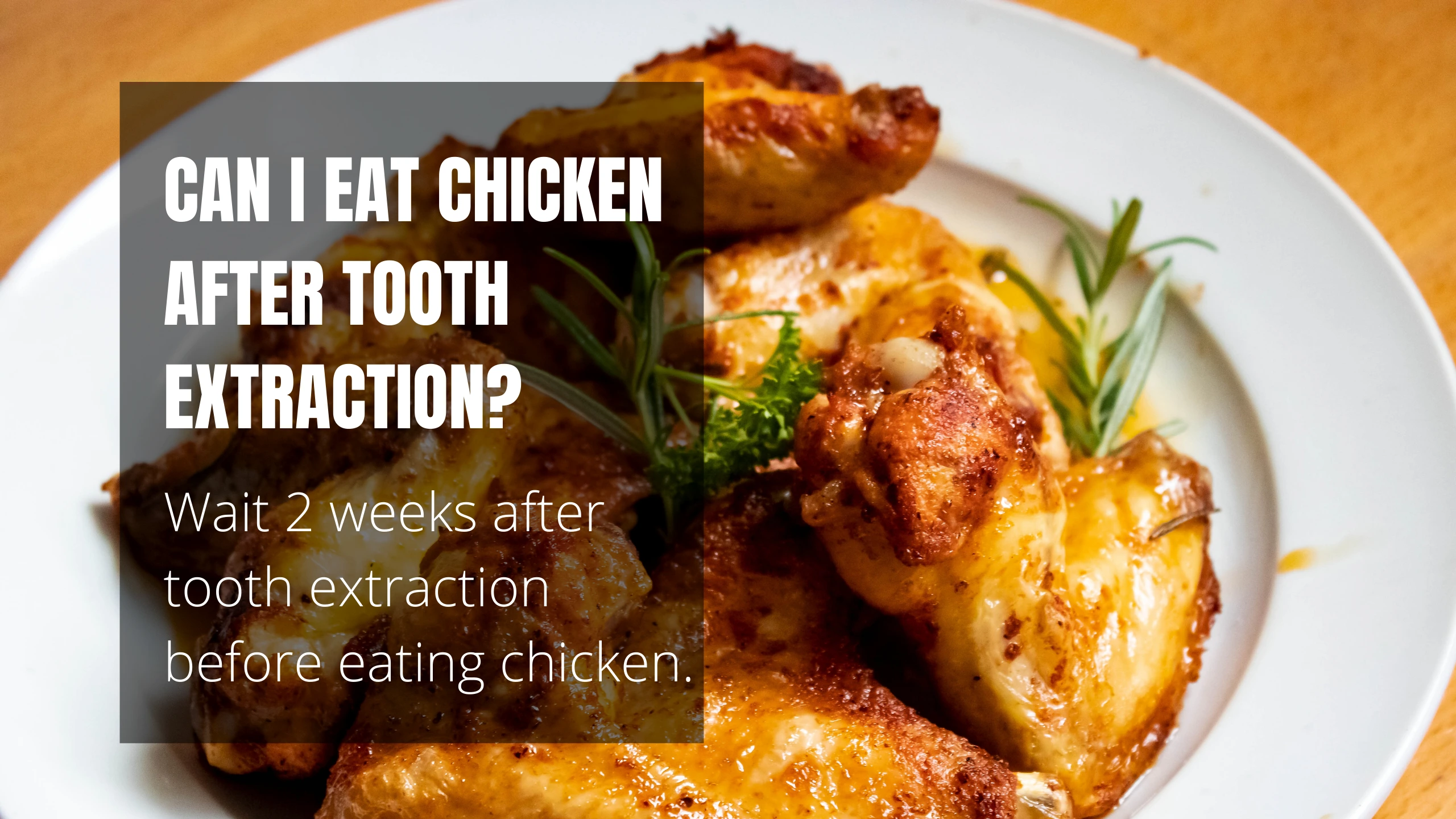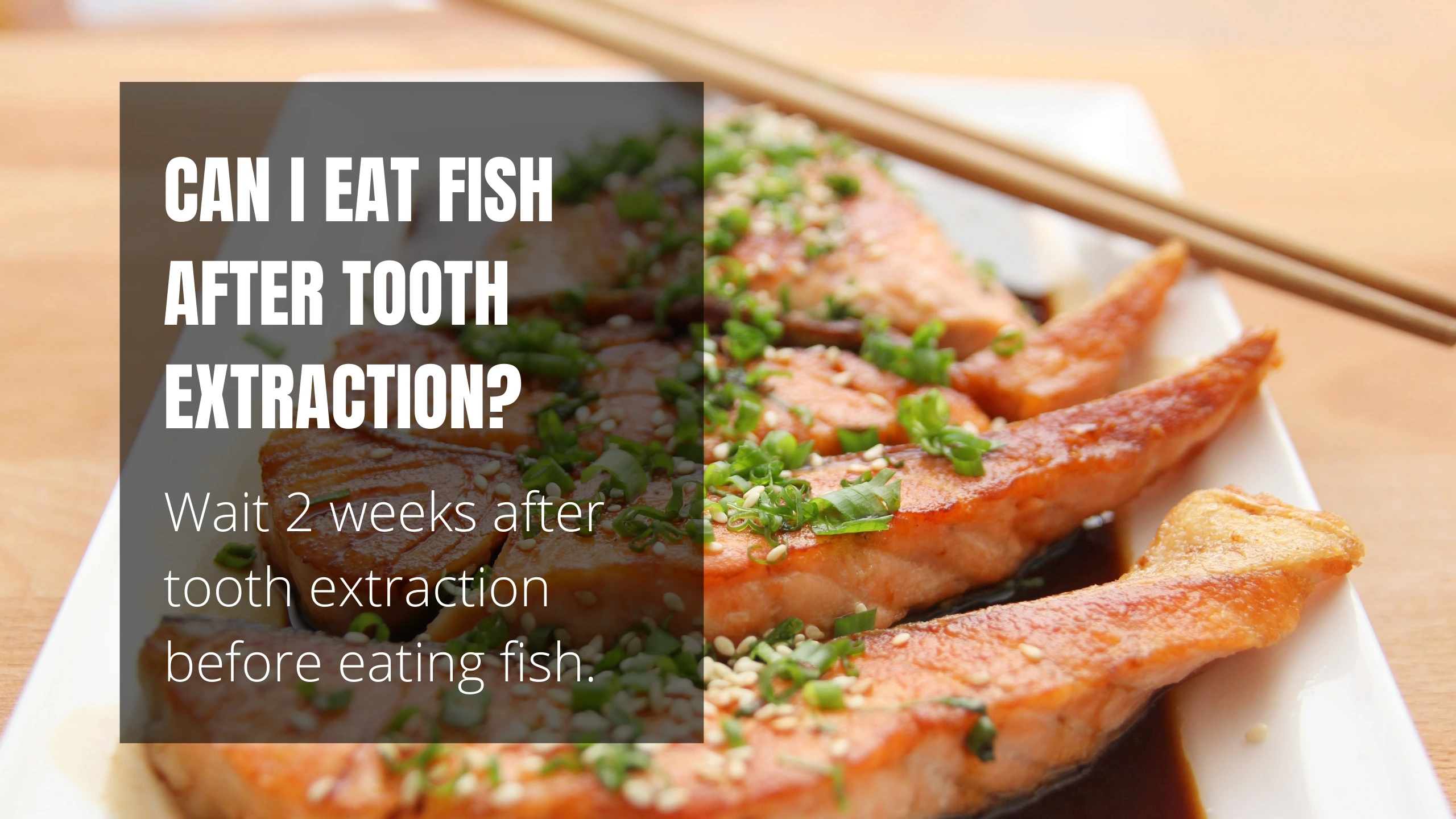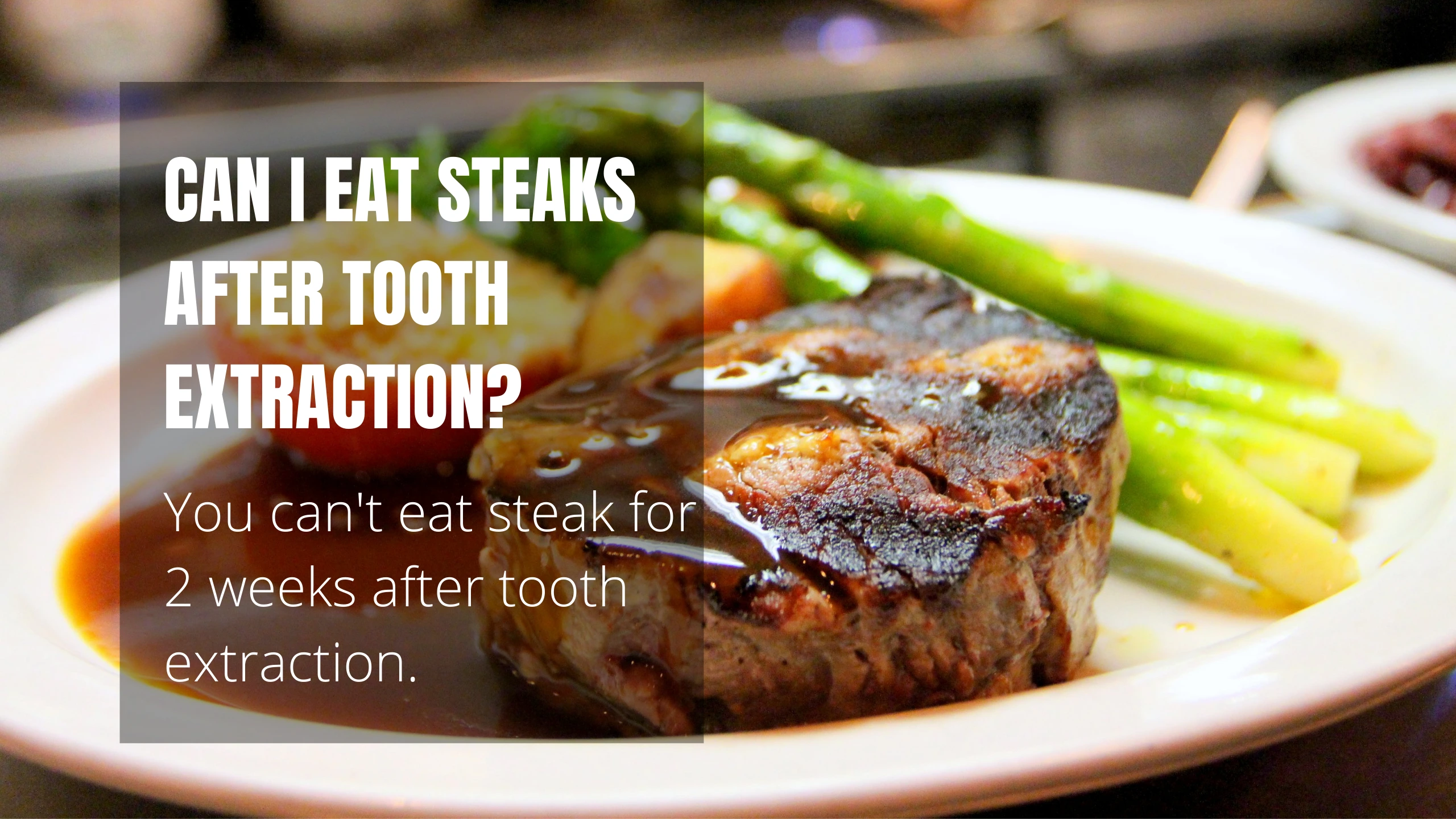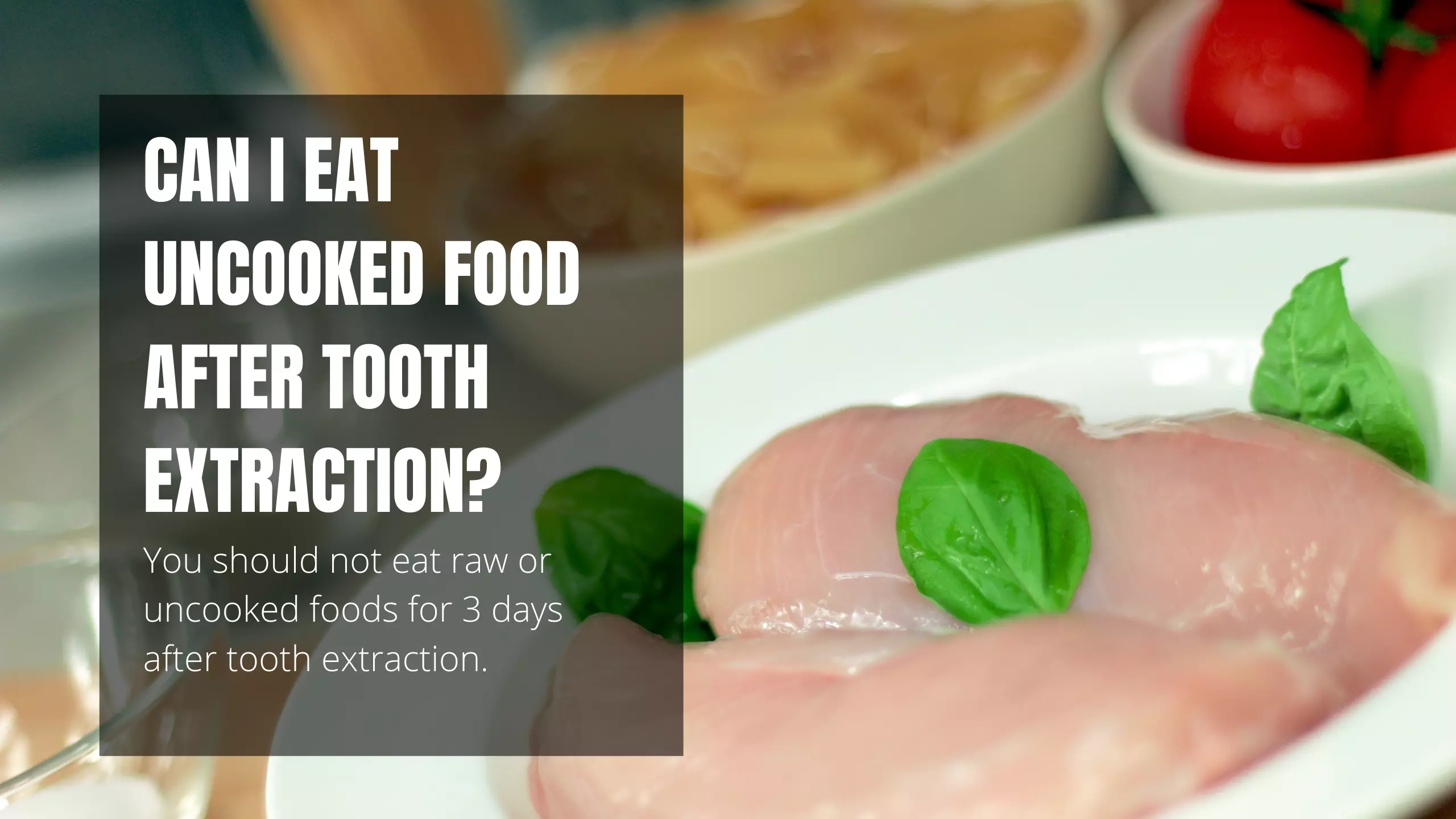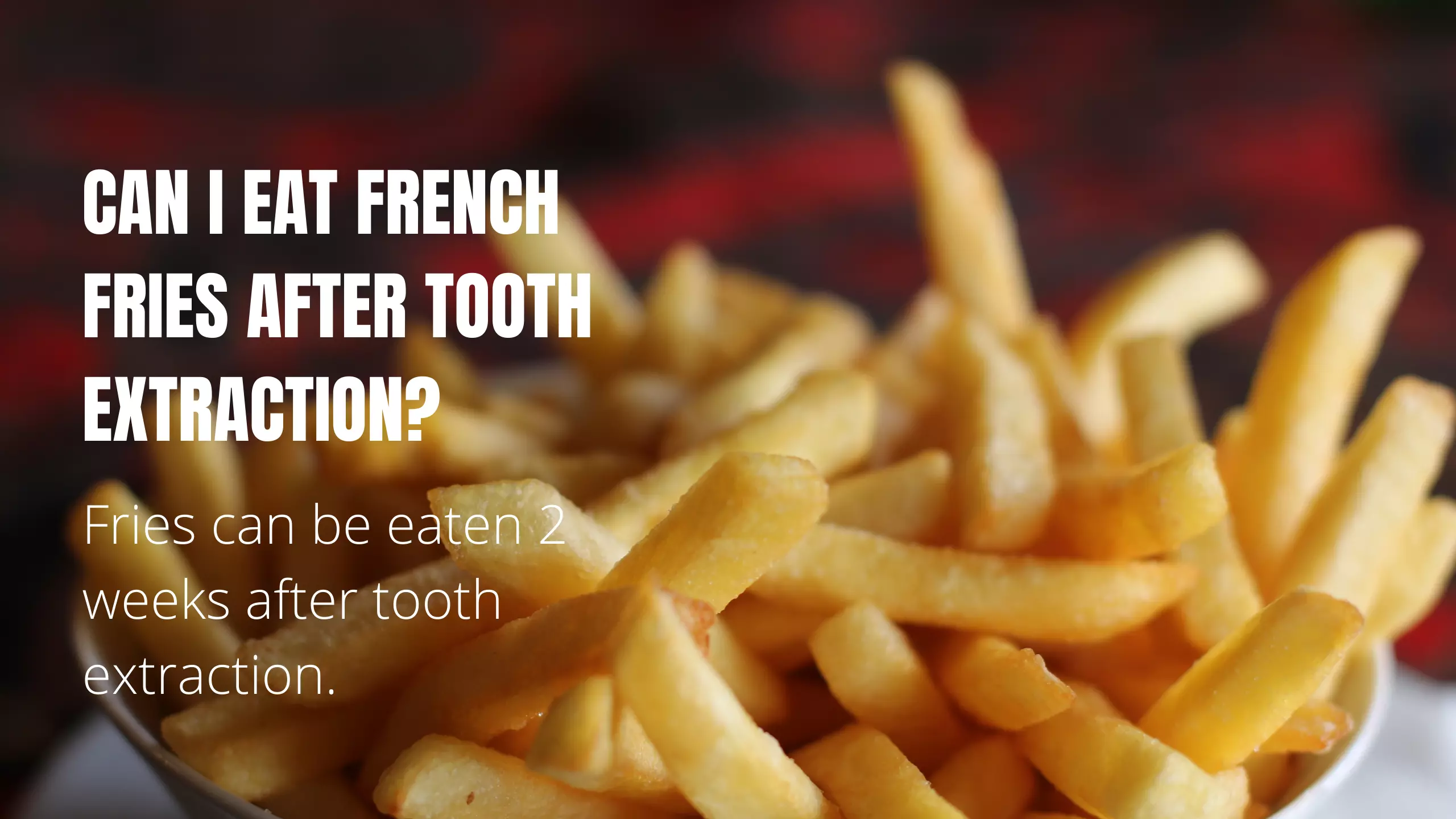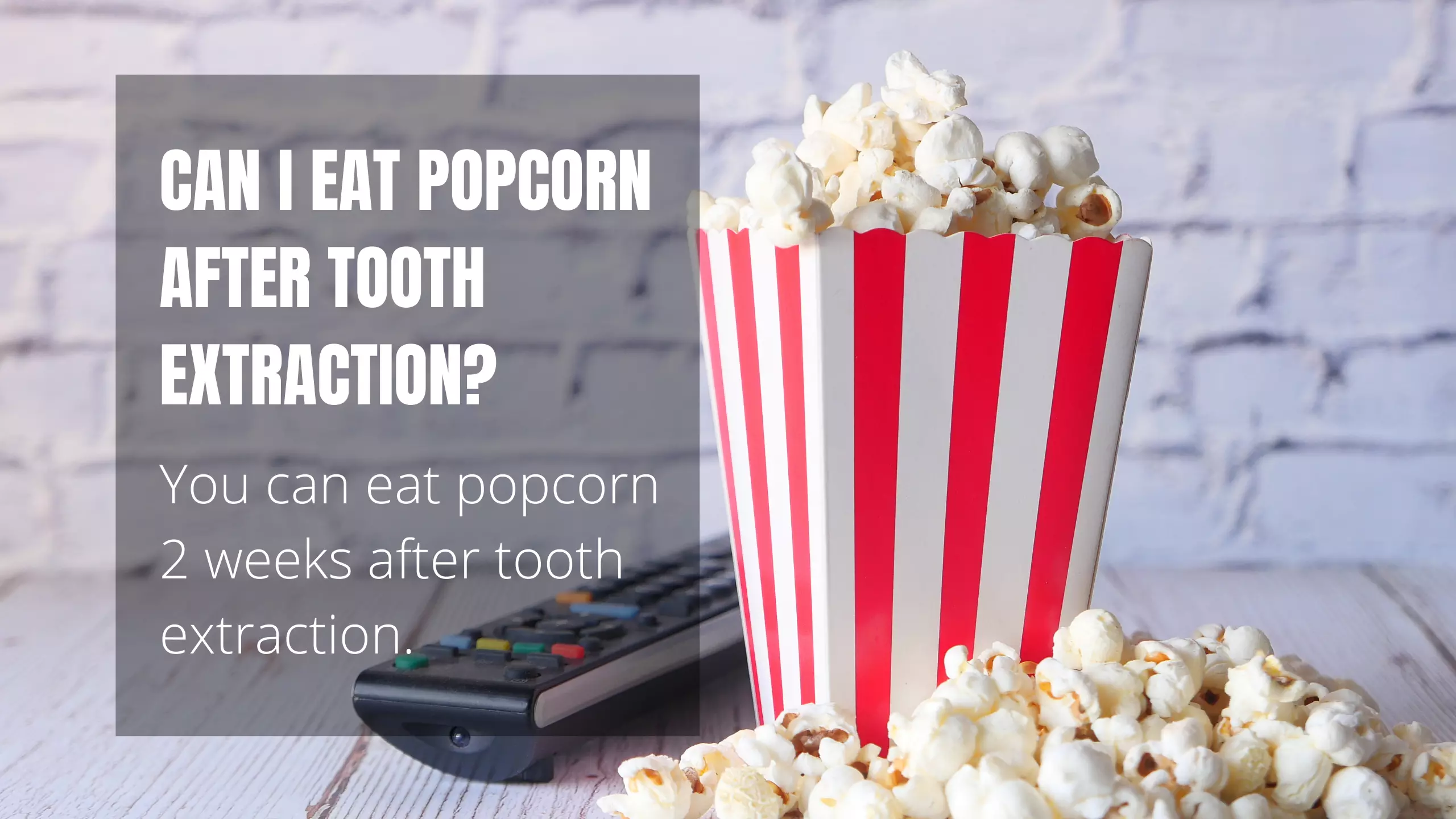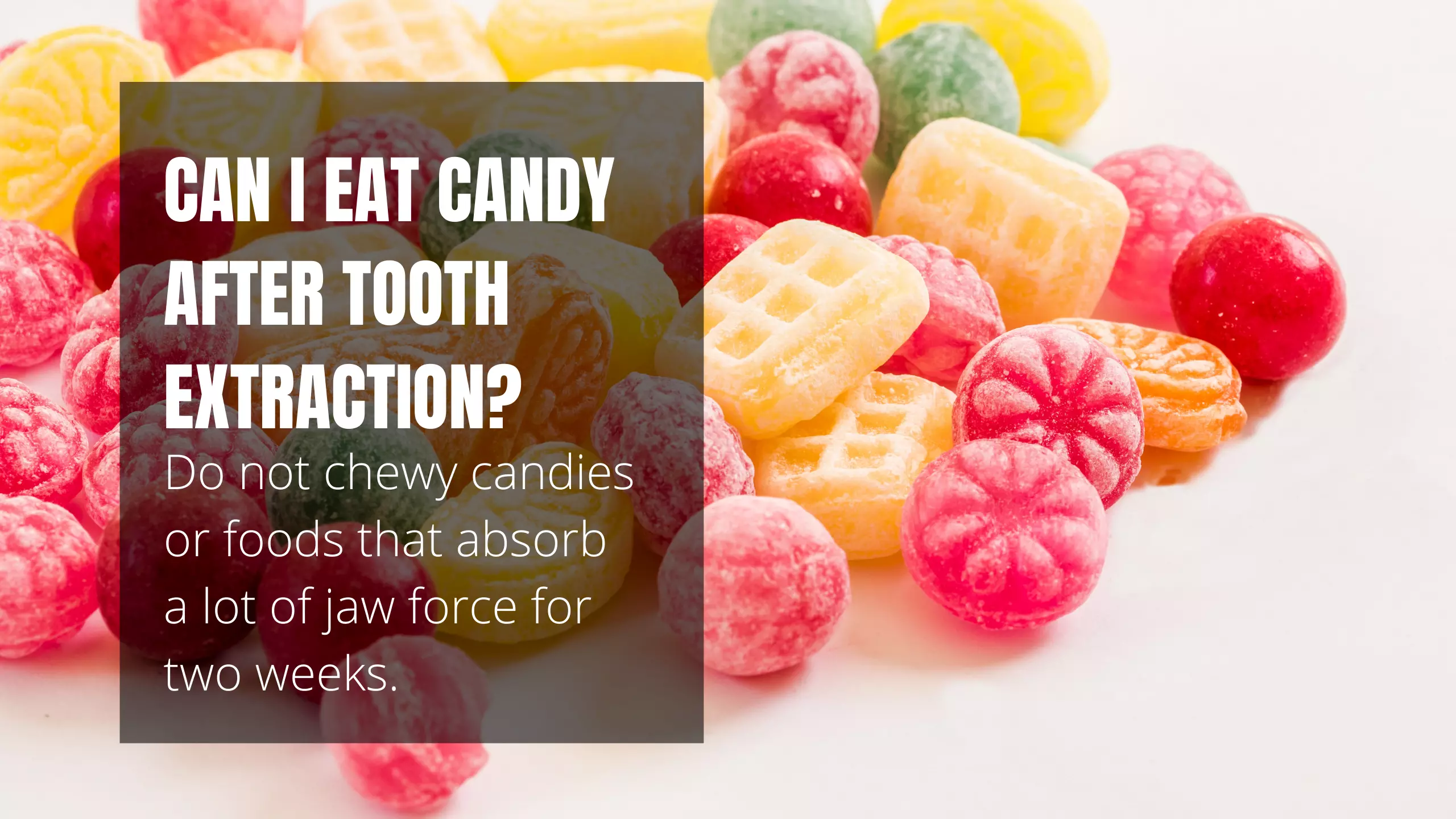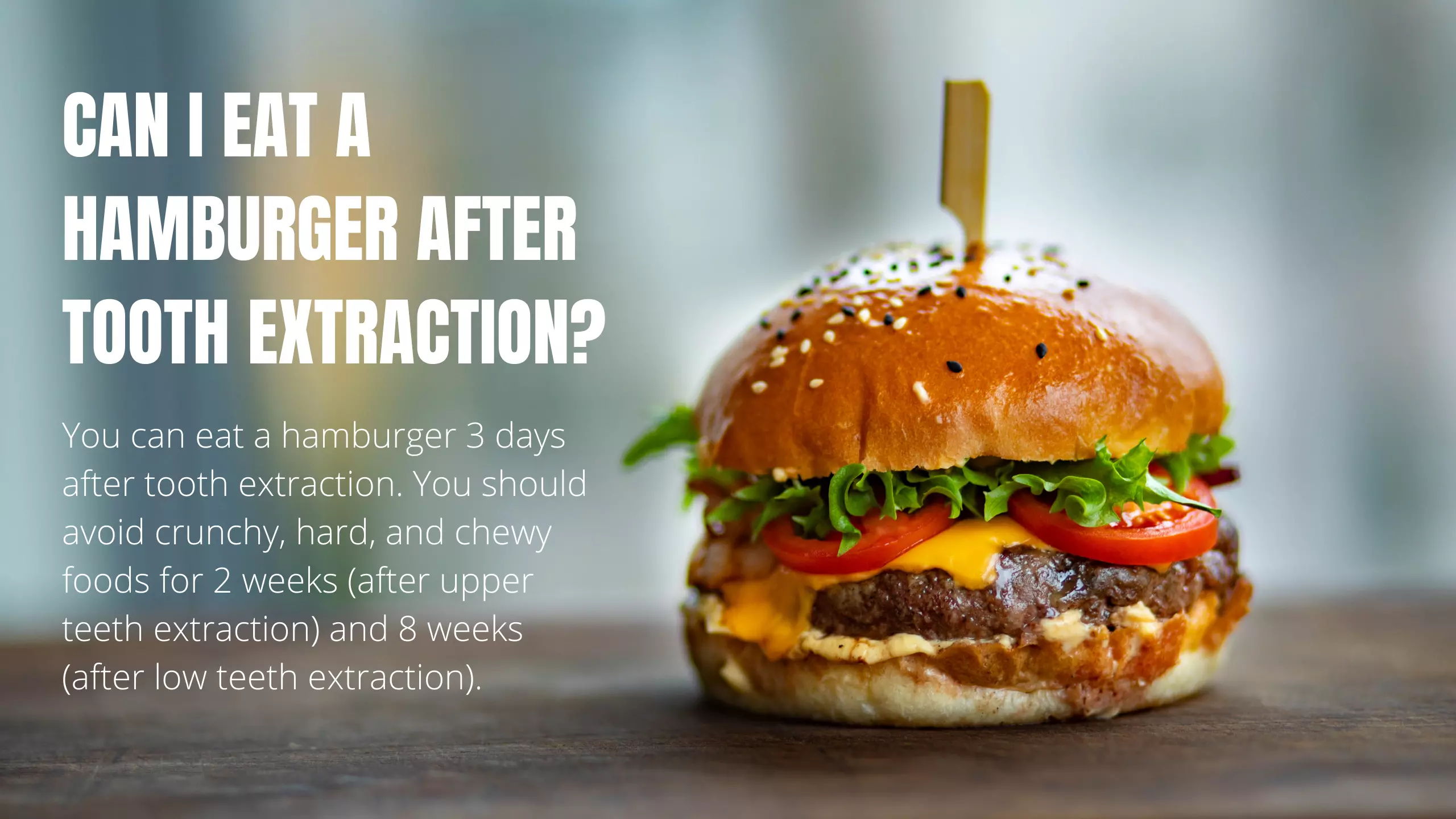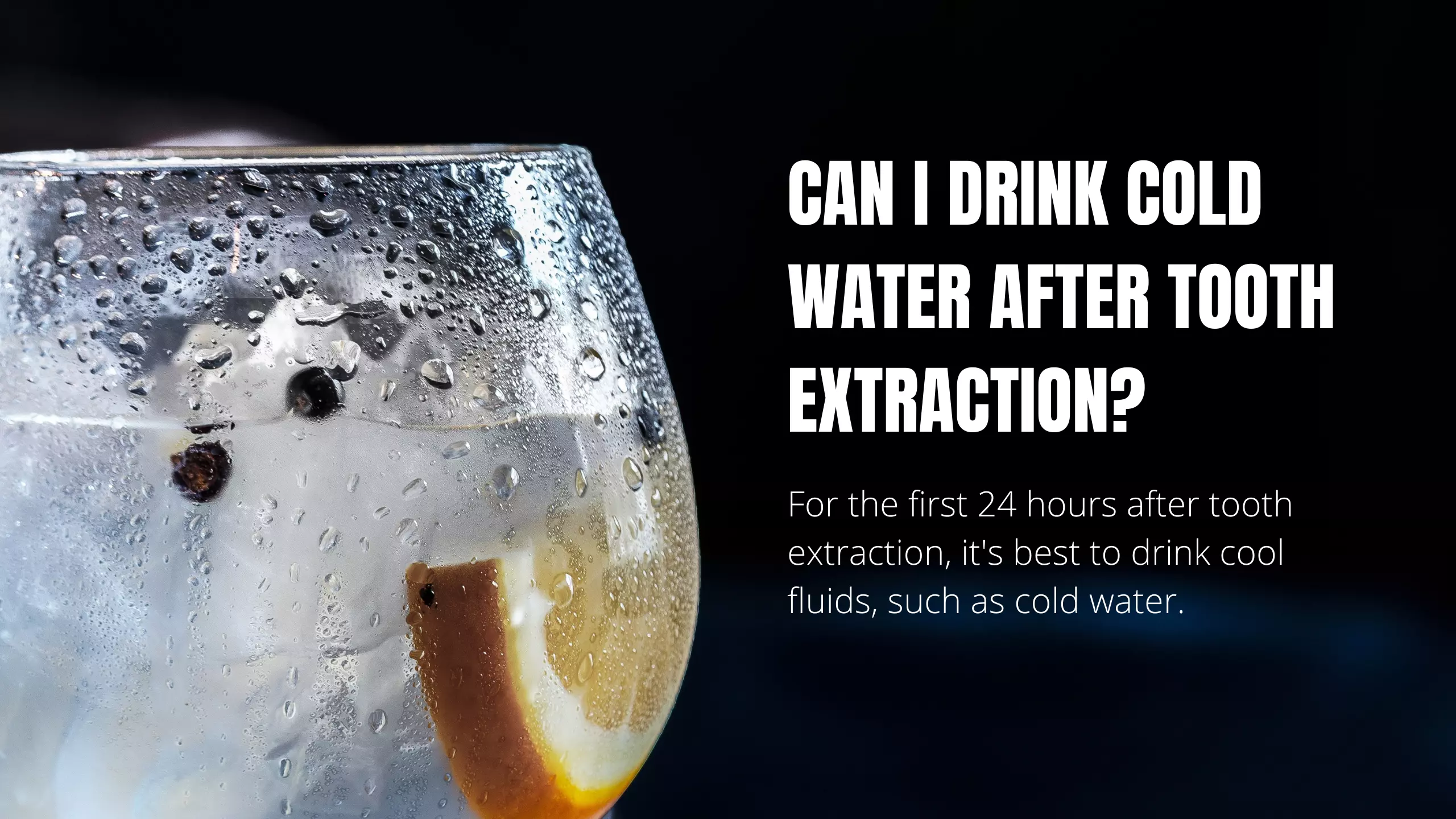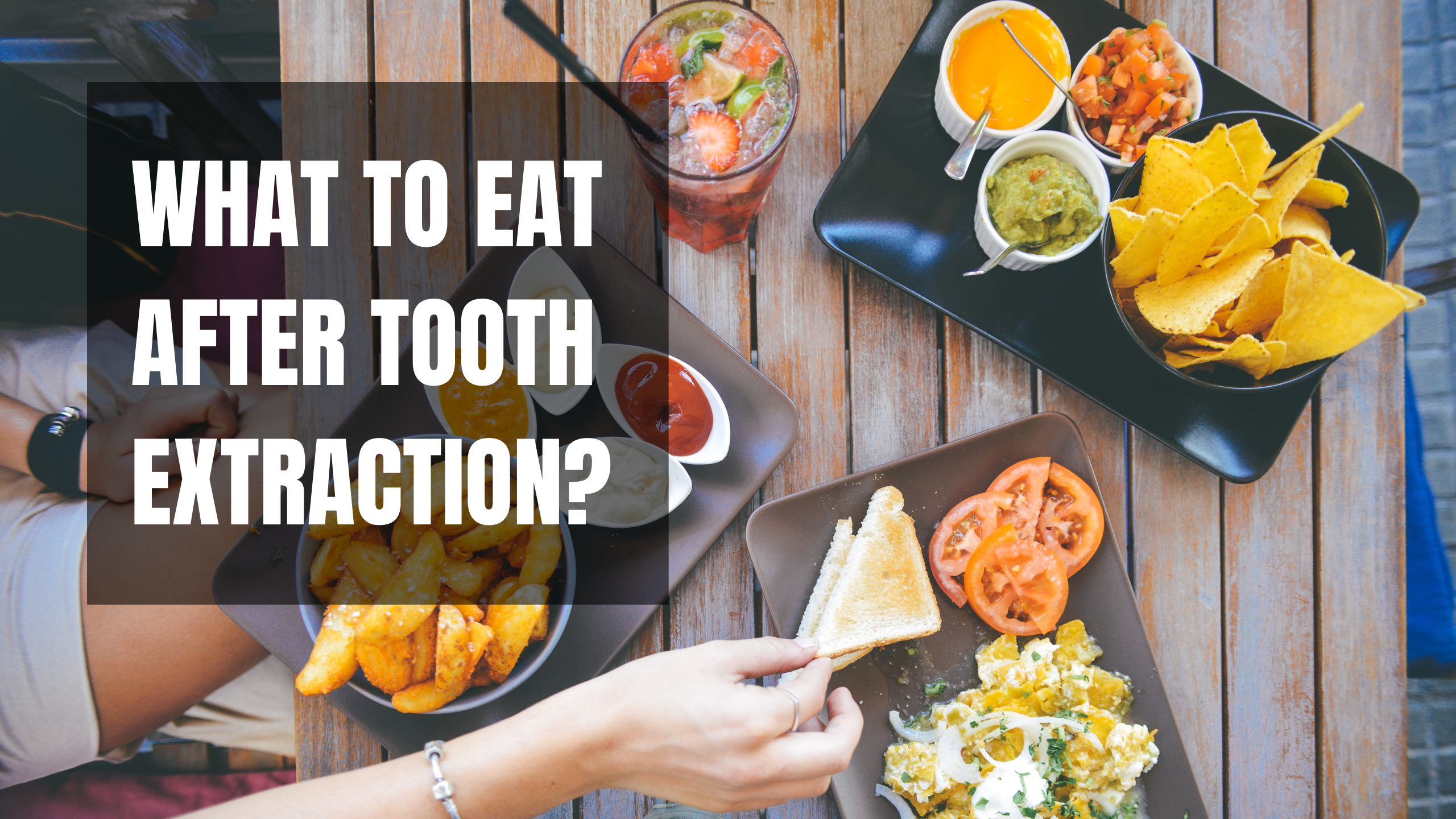
What To Eat After Tooth Extraction?
Be sure to go grocery store before a dental appointment. Expect soreness and sensitivity at the extraction site. Buy soft foods for 3-4 days. Eat soft foods like yoghurt, ice cream and soup. Avoid chunky add-ins like fruit or granola. Eat smooth soups (broths and creamy purées). Avoid hard, chewy and crunchy food for two weeks for fast healing and prevent the opening of stature.
What Can You Eat After a Tooth Extraction?
What can I eat after tooth extraction?
You should be able to eat most food within two weeks after the extraction. However, foods that will cause bleeding or swelling in your mouth will need to wait longer before you can swallow them. Have Foods that are not acidic and do not make a person more vulnerable to infection after tooth extraction. You should be able to chew on soft foods like bread and mashed potatoes immediately after tooth extraction.
| Day | Food |
| Day 1 onwards | Ice cream |
| Day 1 onwards | Jell-O |
| Day 1 onwards | Vegetable puree |
| Day 1 onwards | Fruit Juices (not acidic fruits) |
| Day 1 onwards | Fruit Smoothies (not acidic fruits) |
| Day 1 onwards |
Soups and broth (not too hot or spicy)
|
| Day 1 onwards | Protein shake |
| Day 1 onwards | Sherbet |
| Day 1 onwards | Applesauce |
| Day 3 onwards | Pudding |
| Day 3 onwards | Yoghurt |
| Day 3 onwards | Pasta – cooked very soft |
| Day 3 onwards | Rice |
| Day 3 onwards | Risotto |
| Day 3 onwards | Soft Avocado |
| Day 3 onwards | Baby Food |
| Day 3 onwards | Soft Baked Apples |
| Day 3 onwards | Baked Beans – mashed if necessary |
| Day 3 onwards | Bananas |
| Day 3 onwards | Soft or soaked Biscuits |
| Day 3 onwards | Mashed Beans |
| Day 3 onwards | steamed soft Broccoli |
| Day 3 onwards | Broth (With no spices) |
| Day 3 onwards | Cake |
| Day 3 onwards | Steamed soft Carrots |
| Day 3 onwards | Cheese |
| Day 3 onwards | Cheesecake |
| Day 3 onwards |
Cereal with soaked in milk until soft
|
| Day 3 onwards | Cottage Cheese |
| Day 3 onwards | Cream |
| Day 3 onwards |
Cream of wheat – maybe a little too grainy depending on the type of dental surgery.
|
| Day 3 onwards | Crème Brule |
| Day 3 onwards | Custard |
| Day 3 onwards | Frozen Yogurt |
| Day 3 onwards | Fruit – soft or grind |
| Day 3 onwards | Gravy |
| Day 3 onwards | Guacamole |
| Day 3 onwards | Humus |
| Day 3 onwards | Key Lime Pie |
| Day 3 onwards | Macaroni and cheese |
| Day 3 onwards | Mashed potatoes |
| Day 3 onwards | Meatloaf |
| Day 3 onwards | Melons (Very Ripe) |
| Day 3 onwards | Milk Shake |
| Day 3 onwards | Miso Soup |
| Day 3 onwards | Mousse |
| Day 3 onwards | Muffins |
| Day 3 onwards | Oatmeal |
| Day 3 onwards | pancakes |
| Day 3 onwards | Pies |
| Day 3 onwards | Scrambled Eggs |
| Day 3 onwards | Sour Cream |
| Day 3 onwards | Spaghetti |
| Day 3 onwards | Steamed Vegetables |
| Day 3 onwards | Sweet Potatoes |
| Day 7 onwards |
Pot roast with vegetables – cooked to falling apart
|
| Day 7 onwards | Cupcake |
| Day 7 onwards | Doughnuts |
| Day 7 onwards | Egg Nog |
| Day 7 onwards | Egg Noodles |
| Day 7 onwards |
Eggs (poached, fried or scrambled)
|
| Day 7 onwards | Spinach |
| Day 14 onwards | Soft bread – soak in the soup |
| Day 14 onwards | Beef/Pork |
| Day 14 onwards | Chicken |
| Day 14 onwards | Turkey |
| Day 14 onwards | Meatballs |
| Day 14 onwards | Sandwich Meats |
| Day 14 onwards | Fish |
When can I eat again after a tooth extraction?
6 Hours
You should be able to eat after 6 hours after tooth extraction or less if you have a local anaesthetic. If you had a general anaesthetic, it will have to wait for a few more hours. You should be able to eat most food within 2 weeks of the extraction.
How long after tooth extraction can I eat solid food?
2 Weeks
You should be able to eat most food 2 weeks after the tooth extraction. You should be able to eat your favourite food again within 2 weeks, provided that you don’t develop any unusual conditions that prevent healing within the first 2 weeks.
When can I eat normally after tooth extraction?
2 Weeks
You should be able to eat anything within 2 weeks. Avoid chewing from the tooth extraction site for about 2 weeks following the procedure to slow down the healing process. Although, you can start eating all types of foods after 2 weeks, avoid hot, spicy, acidic, sticky, and crunchy foods until your gum and jawbone is fully healed.
What to drink after tooth extraction?
Drink plenty of fluids like water, juice, and milk
You should drink plenty of fluids like water, juice, and milk to help ease the pain after tooth extraction. You can add a pinch of salt to the water to make a light saline solution. Apply the mixture gently to the affected area. Do not spit out the saline. Instead, keep your mouth until the excess water drips out of your mouth naturally.
What Not To Eat After Tooth Extraction?
Avoid hard, crunchy, chewy foods for two weeks (after upper teeth extraction), 8 weeks(after lower teeth extraction). You should also avoid spicy and acidic for 3 days after the extraction. Hard, crunchy, chewy foods can get stuck in the extraction site, and cause pain. Acidic and spicy food causes irritation, discomfort, pain and slow recovery.
You should not have the following foods for 3 days after the tooth extraction:
- Acidic foods may burn or cause pain immediately, like tomato sauce and orange juice.
- Seeds may get stuck in the extraction site and cause discomfort or infection.
- Spices much like seeds can get lodged and cause pain.
- Popcorn, the corn hulls can become lodged.
- Spicy Foods may lead to pain and discomfort
- Crunchy or Chewy foods may interfere with the formation of blood clots necessary for healing
- Chips are crunchy and can get stuck in the extraction site causing discomfort, pain and irritation.
- Cookies even if dipped in milk, will still be too tough for your tender mouth and teeth to chew.
- Nuts are also too difficult to chew
Mouth wash significantly interferes with healing so it’s worth mentioning. Dentists will usually prescribe a safe mouth rinse, such as Chlorhexidine Gluconate (Peridex).
How long does it take to recover from a tooth extraction?
It takes 48-72 hours for a clot to form in the extraction site. The soft tissue will usually fully heal in about 3-4 weeks. Tissues and bones are cut underneath the gum line, during a surgical extraction. The hole in the extraction site will be almost fully closed in 6 weeks. It may take several months before the indentation fills in completely.
Timeline
What to eat 24 hours after tooth extraction?
You should eat soft foods and avoid crunchy or hard foods for 24 hours after tooth extraction. For example pudding, Jelly, and ice cream. Avoid crunchy, hot, and spicy foods during the first 24 hours after tooth extraction. Drink plenty of fluids like water.
Here are 9 foods you can have within 24 hours of tooth extraction:
- Ice cream
- Jell-O
- Vegetable puree
- Fruit Juices (not acidic fruits)
- Fruit Smoothies (not acidic fruits)
- Applesauce
- Soups and broth (not too hot or spicy)
- Protein shake
- Sherbet
What can I eat 4 days after tooth extraction?
On day 4 after tooth extraction, you can have the cream of wheat, oatmeal, and ice cream. Popsicles can also be eaten, but if ice cream and popsicles are too cold for your gums creating a feeling of discomfort then avoid them for a few days. You should eat soft foods and avoid crunchy or hard foods for 4 days after tooth extraction. Also, avoid acidic foods that can irritate tissue and cause pain in the healing surgical sites.
What can I eat 5 days after tooth extraction?
You should eat soft foods and avoid crunchy or hard foods for 5 days after tooth extraction.
What can I eat 1 week after tooth extraction?
You should eat soft foods and avoid crunchy or hard foods for 1 week after tooth extraction. If the extraction site has not healed completely then avoid acidic and spicy foods. Otherwise, the healing process will slow down.
What can I eat 2 weeks after tooth extraction?
You can eat normally after 2 weeks of tooth extraction.
FAQs
When can I eat spicy food after tooth extraction?
Avoid spicy food for 3 days after tooth extraction. After tooth extraction, a blood clot is formed. Avoid disturbing or dislodging the clot as it helps in healing. Do not rinse or brush your teeth near the extraction site. Avoid spicy food for 3 Days to prevent irritation, infection or a painful dry socket.
Can I have painkillers after tooth extraction?
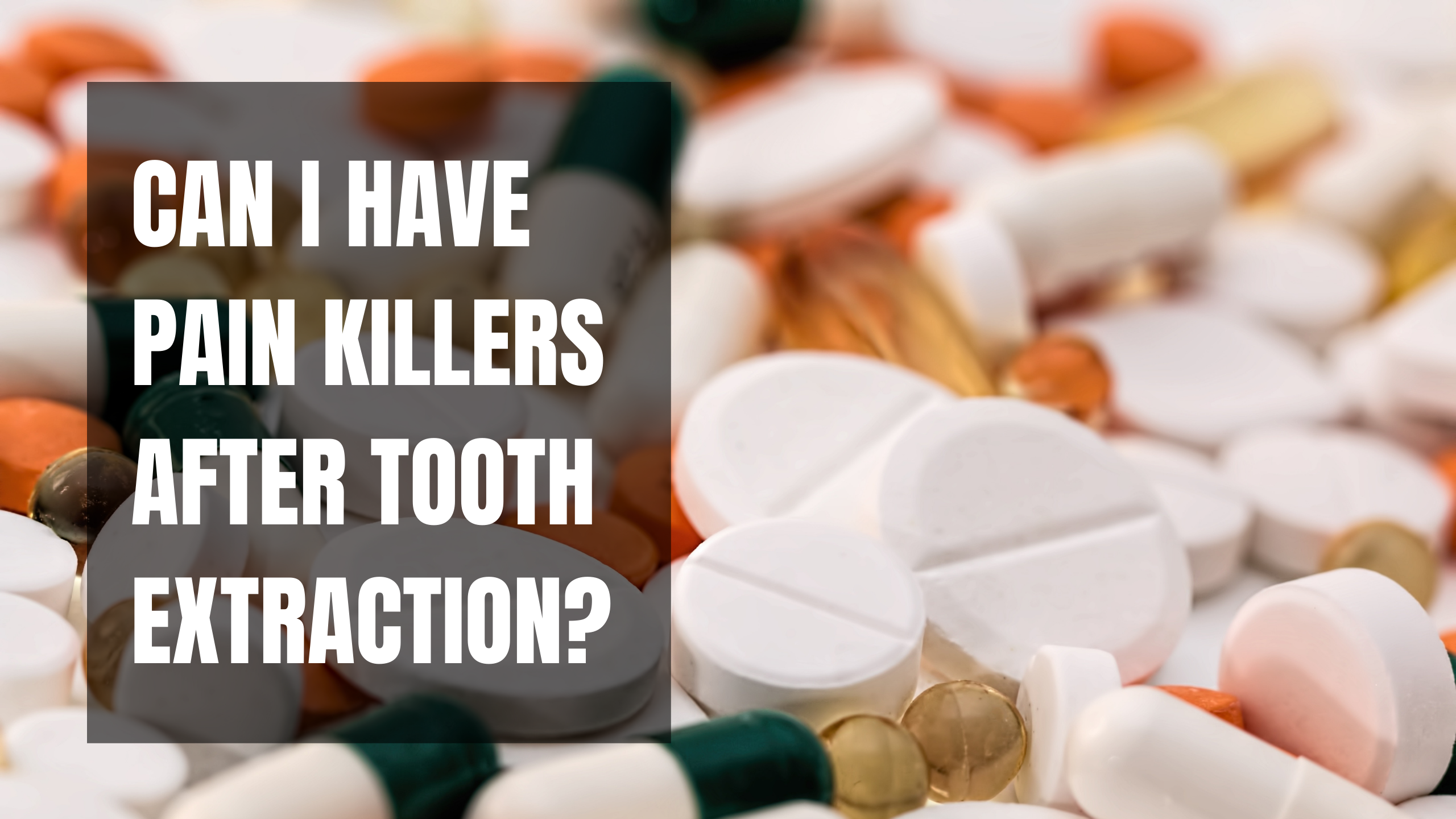
Can I eat ice cream after tooth extraction?
You can have ice cream on the same day as the tooth extraction. In fact, it is the best to eat after tooth extraction because of its cooling properties. You should only have soft foods for two weeks like ice cream, yoghurt, pudding and custard. You should avoid crunchy, hard, and chewy foods for two weeks.
Can I have pizza after tooth extraction?
Wait 2 weeks before you have pizza after tooth extraction. Crunchy food such as the pizza crust can easily get lodged in the extraction site and can open up the statures. On the other hand, the tomato sauce in the pizza is acidic. It can cause irritation and discomfort. Acidic food can slow down the healing process.
Can I eat Yoghurt after tooth extraction?
Avoid Dairy products like yoghurt on the first day of tooth extraction if you had sedation. Dairy products can cause nausea following sedation (anaesthesia) and pain killers. Yoghurt helps in recovery as it is rich in protein and calcium. Its creamy texture is also easy to consume after the extraction.
Can I eat strawberries after tooth extraction?
You can’t eat strawberries after tooth extraction. For the first week, you should eat only soft foods: for example, soups, eggs, mashed potatoes, and meatballs. If you’ve had an upper tooth extraction, wait 2 weeks before eating hard or crunchy food, like strawberries. Wait 8 weeks if lower wisdom teeth have been removed.
Can I eat rice after tooth extraction?
You can’t eat rice for 3 days after tooth extraction. Grains (including rice) and all kinds of seeds can easily get trapped at the extraction site. Hard, spicy, acidic and chewy foods can delay healing and reopen sutures. For upper tooth extraction, allow 2 weeks before eating hard or crunchy foods. Wait 8 weeks if lower wisdom teeth were removed. It should not be cooked in oil because the acidity of the oil can cause discomfort at the extraction site.
Can I eat noodles after tooth extraction?
You can eat noodles 3 days after tooth extraction. You can eat soft foods that do not require intensive chewings, such as cooked and soft noodles, macaroni and cheese, pasta. Avoid hard or crunchy foods for 2 weeks (after upper teeth extraction) and 8 weeks (after lower teeth extraction). Avoid spicy and acidic foods for fast healing.
Can I eat pasta after tooth extraction?
You can have soft well-cooked pasta 3 days after tooth extraction. Soft pasta does not require much chewing. Avoid cooking pasta in tomato sauce as they are acidic and can cause discomfort at the extraction site. Avoid hard, crunchy, chewy spicy and acidic foods for 2 weeks (after upper teeth extraction) and 8 weeks (after lower teeth extraction).
Can I eat bread after tooth extraction?
Wait 2 weeks to have bread after tooth extraction. Bread may seem soft, can be difficult to chew. Avoid any chewy foods that could get stuck to your extraction site. Crackers and bread are likely to get stuck. Trying to eat solid food that is chewy will slow down your healing time.
Can I eat chicken after tooth extraction?
Wait 2 weeks after tooth extraction before eating chicken. Chicken can easily get trapped at the extraction site. Hard, spicy, acidic, and chewy foods can delay healing and reopen sutures. For upper teeth extractions, wait 2 weeks before eating hard or crunchy foods. Wait 8 weeks if lower wisdom teeth have been removed.
Can I eat fish after tooth extraction?
Wait 2 weeks after tooth extraction before eating fish. Fish can easily get trapped at the extraction site. Hard, spicy, acidic, and chewy foods can delay healing and open sutures. For upper teeth extractions, wait 2 weeks before eating hard or crunchy foods. Wait 8 weeks if lower wisdom teeth were extracted.
Can I eat steak after tooth extraction?
You can’t eat steak for 2 weeks after tooth extraction. You should avoid chewy, crunchy and hard foods like steaks for 2 weeks (after upper teeth extraction) and 8 weeks (after lower teeth extraction). You should eat only soft foods for the first week, for example, soups, eggs, mashed potatoes, and meatloaf.
Can I have uncooked raw vegetables and fruits after tooth extraction?
Wait 3 days after the extraction, for eating uncooked food, such as vegetables, fruit and salad. Your mouth is sore and sensitive after tooth extraction. Raw fruits and vegetables can be too hard to eat, bite and chew. Hard foods can cause pain and may lead to other dental issues.
Can I have fries after tooth extraction?
You should avoid eating fries right after tooth extraction. Fries can be eaten 2 weeks later. You can have soft foods in the first two weeks. The oil used for frying is acidic and can cause discomfort at the extraction site. You should avoid hard, crunchy, chewy, spicy and acidic food for two weeks until the extraction site has healed completely.
How long after tooth extraction can I eat popcorn?
You can eat popcorn 2 weeks after tooth extraction. After tooth extraction, you should avoid hard, crunchy, chewy spicy and acidic foods for 2 weeks. As such foods can get trapped in the extraction site causing irritation, pain and discomfort. Having popcorn can slow down the healing process.
Can I eat candy after tooth extraction?
For two weeks, do not chewy candies or foods that absorb a lot of jaw force. You should also avoid hard, chewy, spicy, acidic and crunchy foods like candies and chewing gums. To make sure no hard pieces are interfering with the gum healing process near the removed tooth. For the first two weeks, you can have soft foods like ice cream, custard, and pudding.
Can I eat a hamburger after tooth extraction?
You can eat a hamburger 2 weeks after tooth extraction. You should avoid crunchy, chewy and hard foods for 2 weeks (after upper teeth extraction) and 8 weeks (after lower teeth extraction).
Can I drink cold water after tooth extraction?
For the first 24 hours after tooth extraction, it’s best to drink cool fluids, such as cold water. In addition to applying ice packs to the face and cheeks, you should also drink ice-cold water after the procedure. Not only does ice reduce swelling, but the cold is also an excellent pain reliever, numbing the extraction site.
Can I eat hot Cheetos after tooth extraction?
Cheetos can be eaten after 2 weeks of tooth extraction. You should wait at least 2 weeks before eating any crunchy, chewy, or acidic spicy food that can irritate tissue and cause pain in the healing surgical sites. Avoid Spicy food like Cheetos for 2 weeks to prevent infections or a painful dry socket.
Conclusion
If you aren’t sure what to eat after tooth extraction, consider some of the following items: Smoothies and milkshakes – Remember to use a spoon instead of a straw! Ice cream (without chunky or chewy add-ins) Yogurt (without chunky add-ins like fruit or granola) Soup (lukewarm and smooth soups only, like broths and creamy purées) Cottage cheese Refried beans Mashed potatoes and gravy Mashed potatoes with sour cream and cheddar Pudding Protein shakes Scrambled eggs Applesauce Bananas (mashed up) Creamy peanut butter Jell-O. After two days of only eating soft foods and liquids, you can begin eating some semi-soft foods that don’t require a lot of chewing. Instead, try foods like the following: Macaroni and cheese Pasta Soft sandwiches Fish Soup with soft noodles Ramen Cheese Avocado Cake Muffins Pancakes and maple syrup Steamed vegetables Cereal soaked in milk until soft Crab cakes Cranberry sauce Meatballs Meatloaf Baked apples Although you can begin to expand your culinary horizons, don’t move too quickly.
Table of Contents

